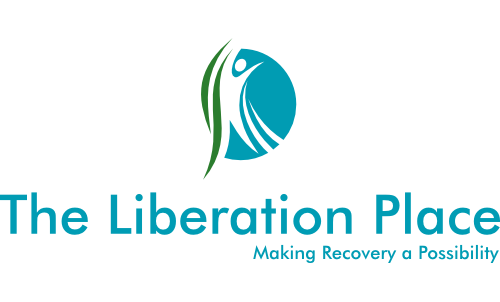Introduction to Modes of Behaviour
From a Schema Therapy perspective, each of us exits within a multiplistic personality system. In other words, our personality is made up of multiple parts. We hear this all the time in the general chit chat we experience in the social settings we’re exposed too. You might hear someone say, “I’ve been offered a job out west and there’s a part of me that really wants to take it, but there’s a part of me that’s a little bit nervous about it too.” This common way of speaking is a great example of the multiplistic personality. There are 2 parts of the persons personality system existing, at the same time, with opposing points of view on the situation they’re facing. Once we accept that this is the case for all of us, we can start to look at the different things we do in response to our thoughts and feelings as being tied to the different parts that exist within our personality system. Enter our Modes of Behaviour.
“Once we accept that this is the case for all of us, we can start to look at the different things we do in response to our thoughts and feelings as being tied to the different parts that exist within our personality system.”
~Steven Morris RP.
In essence, the different modes of behaviour we can learn to identify are the direct behavioural responses that a specific part of our personality is using in response to the current story that’s activated in our system. Living the Life I want to Live means being the person I want to be, in the areas of life that are important to me, according to my true authentic Values and beliefs. If we are able to actually live this way, then life becomes harmonious and balanced. We have a sense of belonging in the world, we feel securely attached to the people that are important to us, and we have some pretty effective schemas that are working in our system. Unfortunately, if it was this simple, we wouldn’t need to step into the world of psychotherapy, counselling, coaching and the billion-dollar industry of Self-Help books that are available these days.
What gets in the way of Living the Life we Want to Live are the many different Schema we have present in our system, and the different parts of our personality that react to their activation. When we integrate the skills of Dialectical Behaviour Therapy with the understanding of personality we have from the theories of Schema Therapy, we can start to mange our behavioural responses in a way that opens up the possibility for change. However, changing modes of behaviour is not an easy thing to do. It involves building awareness for the parts that are activated in our system and labelling them in a non-judgmental way that allows us to “unblend,” (often referred to as cognitive defusion) from their presence in our system. The DBT mindfulness skills assist us in this process.
"Unfortunately, if it was this simple, we wouldn’t need to step into the world of psychotherapy, counselling, coaching and the billion-dollar industry of Self-Help books that are available these days."
~Steven Morris RP.
Practicing our ability to, non-judgmentally, Observe and Describe the parts that are active in our system, by identifying their words in our thoughts, and acknowledging their emotional experiences in our feelings, allows us to disconnect from the behaviour. When done effectively, this opens the possibility to work with the part that’s responding, rather than giving the part the wheel to our bus and allowing it to take us in whatever direction it wants us to go. When we can unblend from the part that’s been activated, we can begin to identify the stories that are tied to these emotional responses. Using the skills of DBT allows us to STOP and Check the Facts to see what’s going on in actuality, rather than our own personal reality that’s connected to our childhood stories. When we are able to do this effectively, we are practicing the art of Mode Management, which is the essence of Distress Tolerance. Mode Management is a skill that is absolutely essential if we are going to develop our ability to regulate our behavioural responses.
It’s also important to point out that, much like Schema’s, there is no such thing as a “Bad Part” within our personality system. Each and every part, and the modes of behaviour they developed to cope with an uncomfortable emotional experience, is an important and necessary part of our personality. We have to accept their presence in our system, so we can work on teaching them how to cope in more effective ways. In addition, we don’t only have parts of our personality that we’re trying to manage their behaviours. We also have parts that are behaving in ways that are effective in achieving the outcome they’re attempting to reach. These parts fall into the general category of the Healthy Adult modes of behaviour, and its incredibly important we learn to recognize and acknowledge these parts every day, to build motivation to continue Living the Life we want to Live.
Modes of behaviour fall into a number of different categories, below is a list of each one.Take some time to explore those that could be applicable to you and the behaviour patterns you’re aware of. As you look on the pages of the website connected to this PDF, you will find links to each of the common modes of behaviour. Keep in mind, these are not the only Modes of behaviour we have in our system, they are the most common ones I have come across in my work as a Psychotherapist, Counsellor, and coach, so if you don’t find a mode that lines up with you and the way you think you’re behaving, don’t worry, it’s ok to create one of your own!
The parts of our personality that are responsible for motivating change, pointing out the ways in which we can do things differently, and judging the people, places and things we are involved with.
The parts of our personality that are emotionally reactive when dealing with difficult and activating situations.
The parts of our personality that have behavioural coping mechanisms, that are often ineffective in maintaining our emotional wellbeing, when we find ourselves in emotionally activating situations.
The parts of our personality that live life on lifes terms, Living the Life we Want to Live, and without a need to escape from emotions in an effective way.
Building awareness for the presence of these modes of behaviour involves keeping track of the way they show up as parts of our personality within our personality system. Each part has a tendency to show up in very unique ways, but the generally manifest in our thoughts, feelings, physical sensations, and urges to react. Documenting these things in situations where we had uncomfortable emotional experiences that led to behaviours that didn’t line up with being who we want to be, in the areas of life that are important to us is an important thing to do.
This helps to build awareness for the presence of these parts within our personality, and when we can link this to the activation of a fear-based state, otherwise known as when our system goes into distress, then we can learn how to use the STOP skill and unblend from the part, rather than becoming the part. In the PDF at the bottom of this page, there is an exercise called a Mode Journal. This is intended to track our thoughts and feelings to help develop this awareness. Keep in mind that this can be used for both positive, and negative emotional experiences, as it is all about building awareness. Also, if you have a difficult time recalling what took place, it can be helpful to use audio logs, by recording your vent in the moment on your phone or some other recording device, then listen to them later to help reflect on what went on.
Download the PDF of this page
Follow us on Social Media





